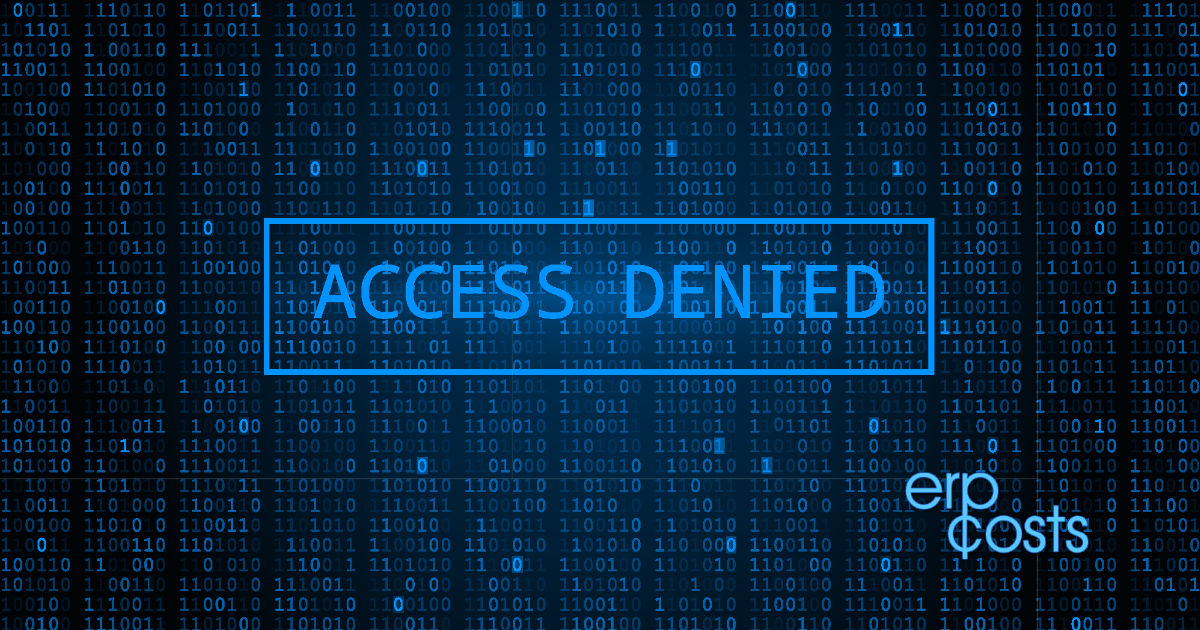The Dark Side of Cloud ERP: Topic #3 – What if Your Cloud ERP Vendor Fails
The Dark Side of Cloud ERP:
Topic #3 – What if Your Cloud ERP Vendor Fails

Cloud ERP Nirvana
For years ERP sellers have increased their push of the cloud delivery model as internet bandwidth and browser-based development tools matured. Today there are some real benefits to ERP users, primarily the offloading of local management of the ERP hardware and software stack and easy access wherever there’s an Internet connection.
However, sellers offering subscription-based Cloud ERP largely do so as the business model is significantly better for their long-term revenue and customer control when compared to the classic perpetual licensing model.
Regarding Cloud ERP failure protection, the ERP sellers would say they depend on their 3rd party data centers who do have substantial measures for resilience to point failure of IT infrastructure involved. However, if the ERP vendor has not maintained the commercial relationship with the 3rd party data centers and cannot pay its bills, or there’s a broader IT infrastructure problem, then we have a real problem.
The Day ACME Corp.’s Cloud ERP Went Down
Margaret, the VP of Operations of ACME Corp. is starting her day at the company headquarters. The parking lot is filling with cars by about 7:30am, with about 50 company team member from various accounting, procurement, and production planning duties. Around 9am, the Controller and IT director come to Margaret with the message, "Our ERP is down". Margaret calmly asks, "When will this be fixed?" The IT Director frantically admits the last 90 minutes was spent trying to solve the issue and now it appears something more serious is going on. The ERP seller is not answering their phones and there is an unnerving message on their website about extended unavailability.
The rest of the day is spent trying to find out what is happening while Margaret's entire team, excepting some production employees, are mostly idle and starting to increasingly speculate about the situation. Margaret’s worry evolves to visceral frustration. Later in the day, a message is received about the ERP company being in some sort of financial crisis and having key vendors stopping service – including the two contract data centers the ERP vendor uses. There’s a paragraph about some potential buyer and service being restored, but it’s cryptic at best. Margaret’s anger starts turning into panic as the gravity of the situation becomes clearer. Margaret and her management team work into the evening with the stark realization they must try to figure out how to operate without the current ERP for some period of time.
Two years later, ACME Corp. is still in business. However the trauma of having the core critical business system turned off nearly killed the company. Revenue and sales took a major hit as customers and distributors learned about ACME’s instability to process orders. Further, the ACME team simply could not react to the prior production volume with a substantially manual and isolated process structure. About half the employees did not make it through the company crisis, including Margaret.
This ERP failure was an unmitigated disaster that could have been avoided if a proper failover option was in place.
All businesses will cease to operate at some point —through a failure event, acquisition, or orderly close. It’s the failure event that should concern buyers of remote ERP access. So why do commercial offers from Cloud ERP sellers clearly presume this could never happen by giving buyer no failover options?
The Solution and Longer-term Projections
Offering a failover option is technically not difficult and carriers little cost unless the failover option is executed. This is explained in a white paper on this topic.
Longer term there will have to be an industry correction to firmly address this risk that is pushed on buyers of ERP access. As soon as one established Cloud ERP seller proactively offers a real failover plan, such a plan will easily stand out as valuable and respectful of the buyer’s integrity. This will cause buyers to ask other ERP, "Describe your failover plan in the event (1) you cannot operate one day or (2) of broad and sustained Internet outages." At this point, any answer other than a good plan should be starkly noticed, and this will eventually force the other sellers to fix this gaping and unnecessary risk thrust upon the ERP buyer. A few high-profile Cloud ERP failures or some event that cause great damage to Internet infrastructure will really drive home this point.
ERP - Arguably the hardest commercial relationship to escape . . . So get it right at the start.
Information in these articles is based on the experience of over 1000 ERP projects conducted since
1996 in which the ERP buyer's interests and well-being was the sole focus.
